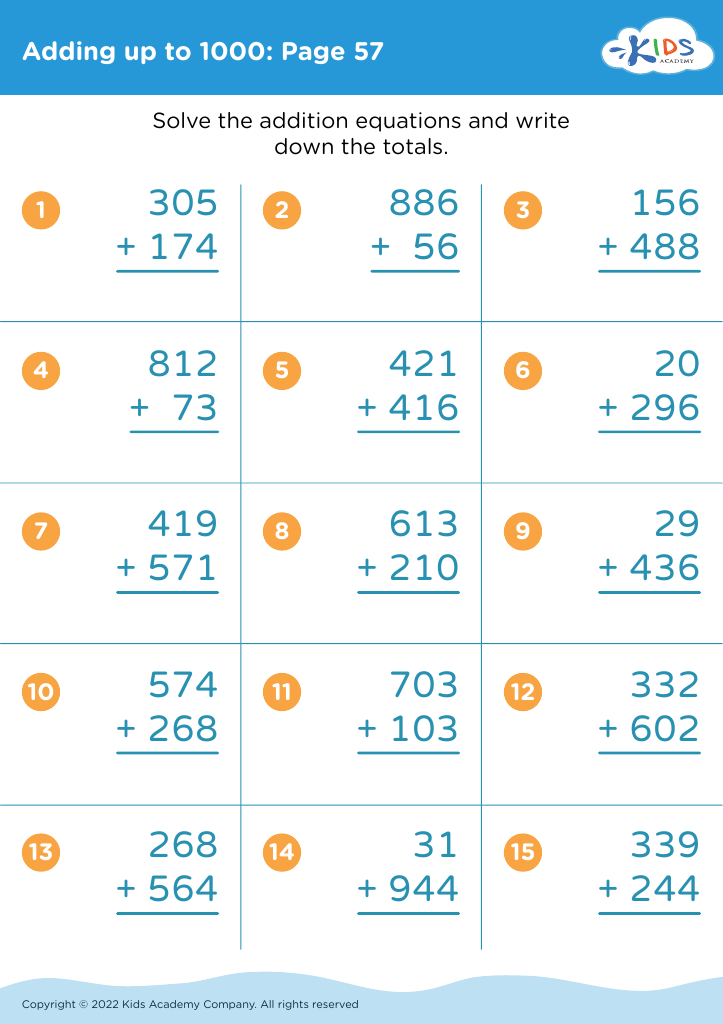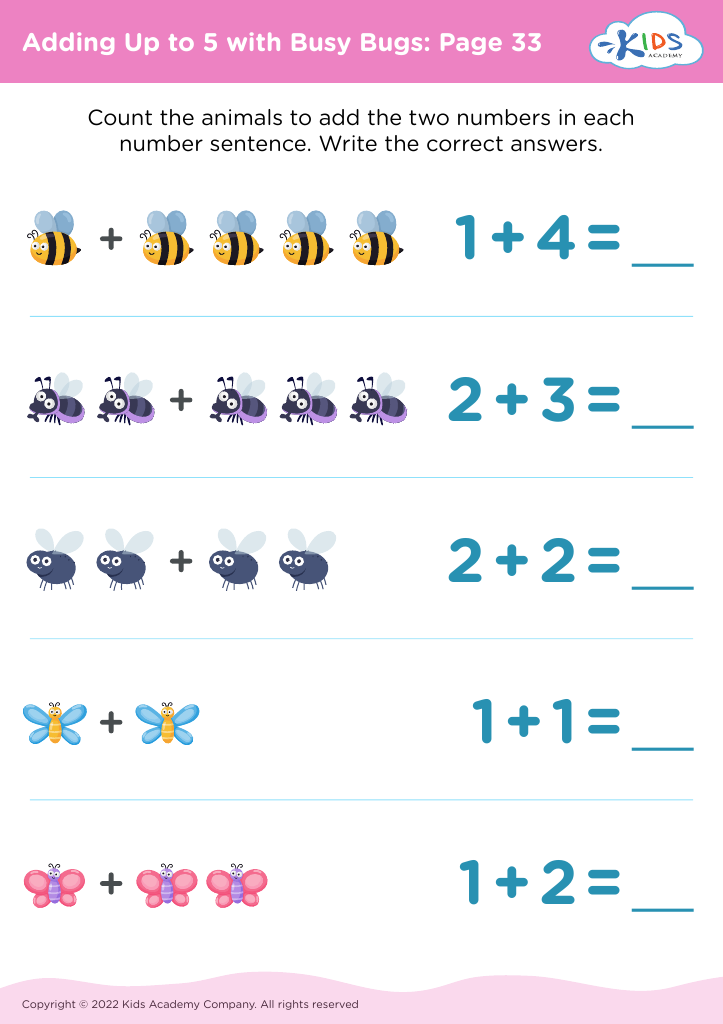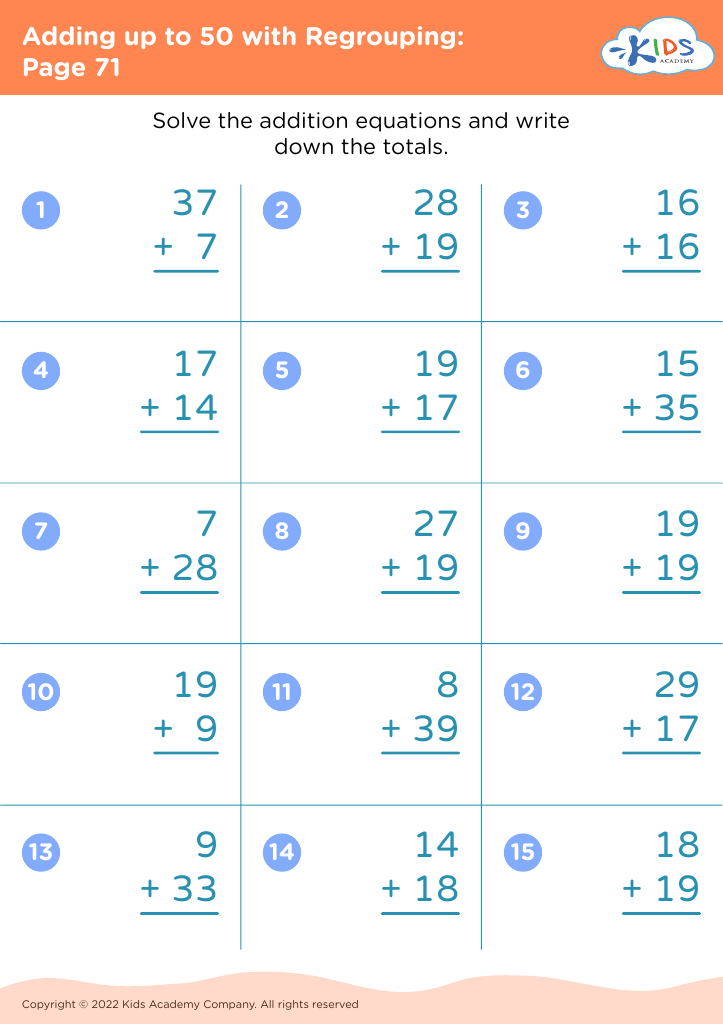Motor skills development Addition & Subtraction Worksheets
5 filtered results
-
From - To
Enhance your child's motor skills and math abilities with our engaging Addition and Subtraction Worksheets! Designed for young learners, these worksheets combine fun activities that promote the development of fine motor skills while reinforcing basic arithmetic concepts. Children will practice tracing numbers and solving simple addition and subtraction problems, all while improving hand-eye coordination and grasping techniques. Perfect for at-home learning or classroom use, these worksheets are colorful, interactive, and easy to follow, ensuring that kids remain excited about learning. Download your free worksheets today and watch your little one thrive in both math and motor skill proficiency!
Motor skills development is crucial for children's overall growth, significantly impacting their academic achievements, including foundational skills like addition and subtraction. Gross and fine motor skills help children engage in activities that require hand-eye coordination and dexterity, such as writing numbers, using manipulatives, and ultimately solving mathematical problems.
When parents and teachers prioritize motor skills, they equip children with the physical abilities to facilitate learning. Children with well-developed motor skills can focus on math concepts without struggling with basic actions like holding a pencil or moving counters. Additionally, motor skills are closely linked to cognitive development; as children engage in hands-on activities—such as using their fingers to count or manipulating objects for addition and subtraction—they build spatial awareness and logical reasoning.
Moreover, strong motor skills can enhance children's confidence and independence in learning. As they master their ability to physically manipulate numbers and objects, they are more likely to tackle math problems with enthusiasm. Lastly, fostering motor skills creates a fun and interactive learning environment, which can lead to a lifelong love for mathematics. To support children's success in both motor skills development and mathematical understanding, parents and teachers working together can effectively help children build a solid foundation for future learning.


























